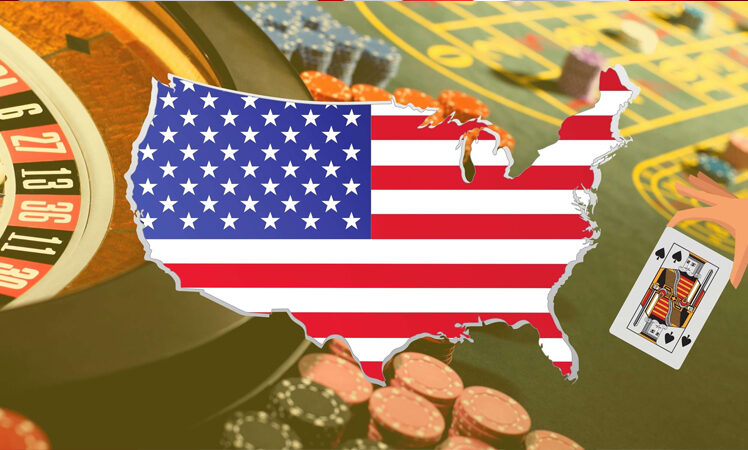Shutdown pressures gaming and travel
The United States government shutdown, now in its 35th day and counting, is rippling through the gaming industry as uncertainty mounts across both brick-and-mortar and digital markets.
Lawmakers remain at an impasse after failing to agree on a funding bill by the 1 October deadline. This marks the 15th federal shutdown since 1980, and as of this week, it has become the longest in U.S. history, surpassing the 35-day closure that began in December 2018 under President Donald Trump. The Senate’s rejection of a stopgap funding bill for the 14th time has left little hope of an imminent resolution.
-
The 2025 U.S. government shutdown is now the longest in history, with no funding deal in sight.
-
Las Vegas faces mounting pressure as air travel disruptions threaten tourism and casino revenues.
-
Federal regulatory paralysis is straining prediction markets and adding uncertainty to the digital gaming sector.
Economic Pressure Builds Across the Sector
For the gaming industry, a prolonged shutdown is creating multiple points of pressure — from air travel disruptions that threaten tourism in Las Vegas to regulatory slowdowns affecting online markets. The American Gaming Association (AGA), which represents the $329-billion industry, has avoided direct comment on the shutdown but joined a coalition letter from the U.S. Travel Association urging Congress to reopen the government. The letter, co-signed by major gaming operators including Caesars Entertainment, MGM Resorts, and Delaware North, warned that continued closures would have “immediate, deeply felt” economic consequences ahead of the Thanksgiving travel rush.
Las Vegas, the country’s premier gambling hub, is especially vulnerable to air travel disruptions caused by unpaid and overworked federal employees. Air traffic controllers at the Federal Aviation Administration have already missed one paycheck, with another expected to lapse in the coming days. Staffing shortages have led to widespread flight delays and cancellations. Transportation Secretary Sean Duffy warned Tuesday that an extended shutdown could trigger “mass chaos.” “You will see mass flight delays,” Duffy said, according to Politico. “You will see mass cancellations. And you may see us close certain parts of the airspace because we just cannot manage it.”
These disruptions come as Las Vegas struggles with slowing visitor growth. International arrivals at Harry Reid International Airport fell 13% year-over-year in September, reflecting ongoing trade tensions with Canada and Mexico. Gaming revenue, which had grown for three consecutive months, slipped in the same period — adding pressure ahead of the Formula One Las Vegas Grand Prix and the holiday travel season.
The U.S. Travel Association estimated earlier this year that the broader travel industry loses about $1 billion per week during a government shutdown. Beyond tourism, digital gaming operators are facing their own uncertainty. The rapid rise of prediction markets — online platforms where users trade contracts on political, cultural, and sporting outcomes — has collided with the realities of a shuttered federal government.
These markets are regulated by the Commodity Futures Trading Commission (CFTC), which has been forced to curtail operations due to funding lapses. The commission was already under strain before the shutdown: Acting Chairwoman Caroline Pham remains the only commissioner in office following several resignations.
Trump’s nominee to replace her, former SEC crypto official Michael Selig, is awaiting confirmation. Even if approved, he would lead a hollowed-out agency with fewer than 700 staff responsible for regulating trillions in trading activity.
Regulatory Gaps, Legal Uncertainty
With the CFTC largely inactive, prediction markets such as Kalshi and Polymarket have continued to expand with limited oversight. Both companies now hold multibillion-dollar valuations and have struck partnerships with the National Hockey League. Meanwhile, shares in major sportsbook operators Flutter (parent company of FanDuel) and DraftKings have fallen 30% and 40% respectively since September, reflecting investor unease.
State regulators and traditional gaming firms have questioned whether the CFTC can serve as an effective federal gambling watchdog. Forty-eight U.S. states currently permit some form of legal gambling, each with its own regulatory body. Even within those frameworks, enforcement challenges persist — and the absence of an active federal agency raises further concerns.
With Thanksgiving, the busiest travel period of the year, imminently approaching, the consequences of a continued shutdown will be immediate, deeply felt by millions of American travelers, and economically devastating to communities in every state.
A Prolonged Shutdown, Mounting Risks
The financial uncertainty now facing both Las Vegas casinos and online gaming platforms underscores the shutdown’s broad reach. With key travel periods approaching and no clear political resolution in sight, the industry’s immediate future hinges on how quickly Washington can act.
Until then, casino floors may stay busy, but confidence in the stability behind them continues to erode.








